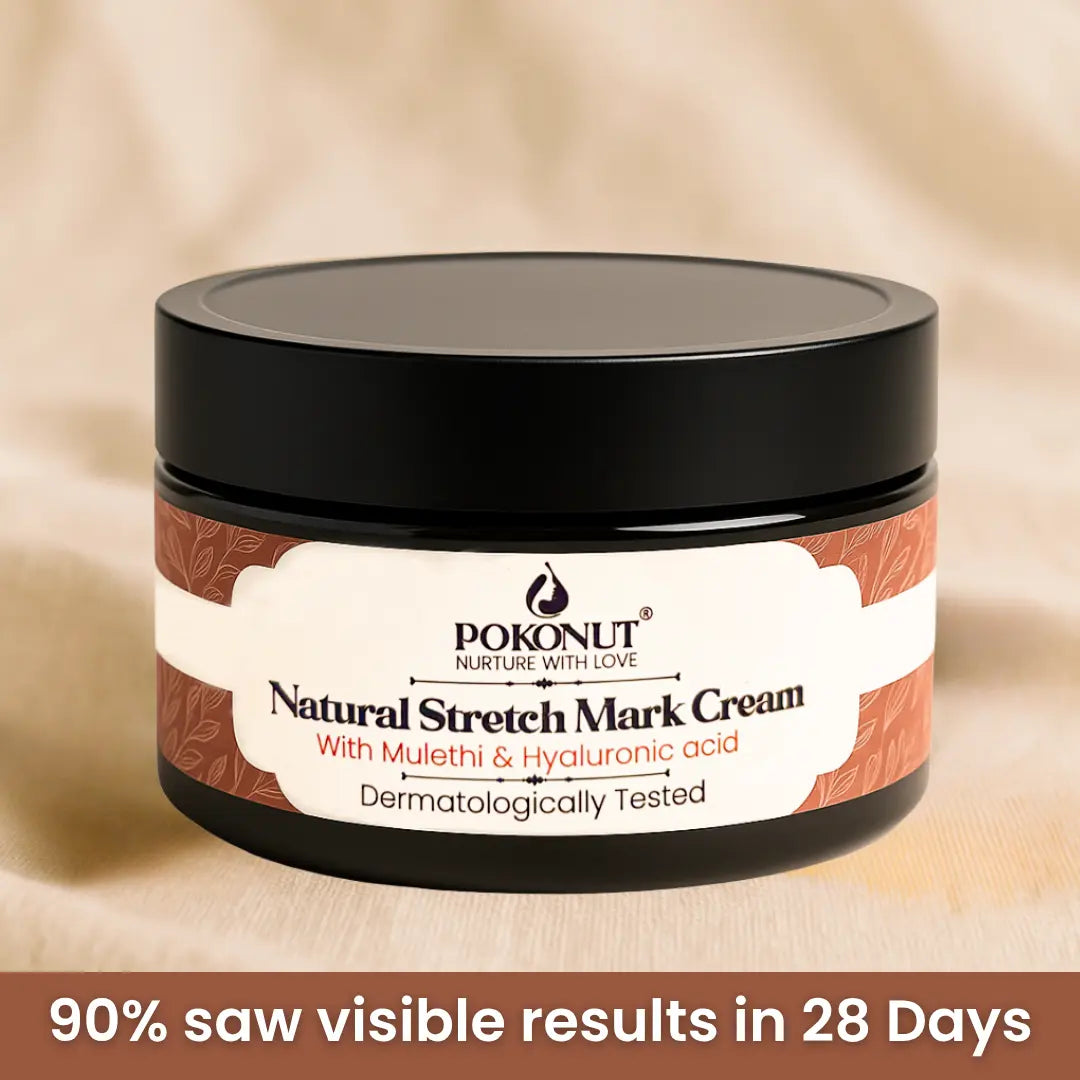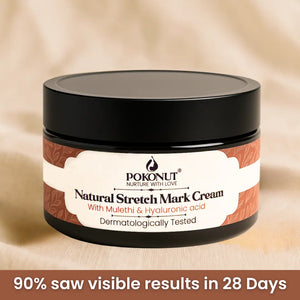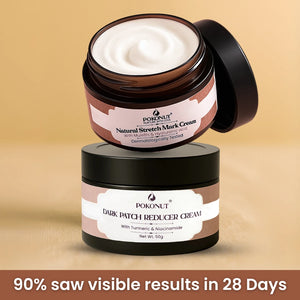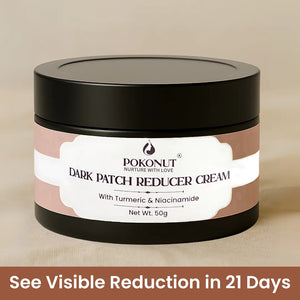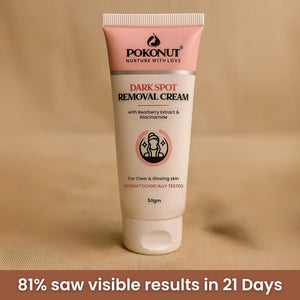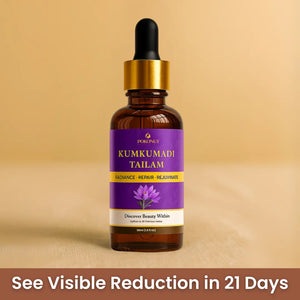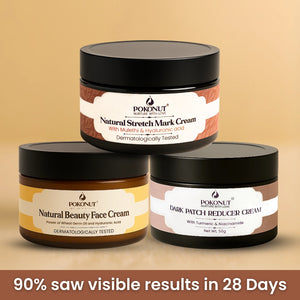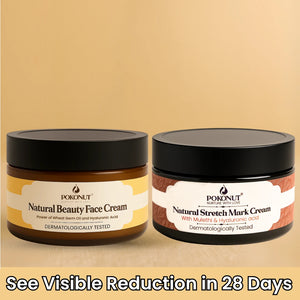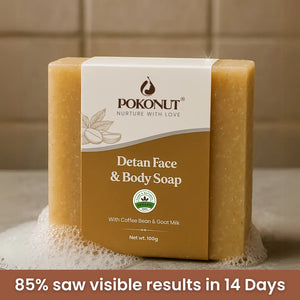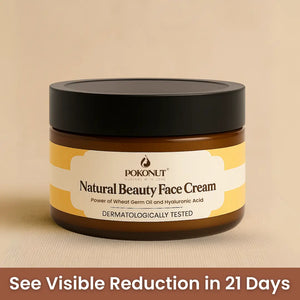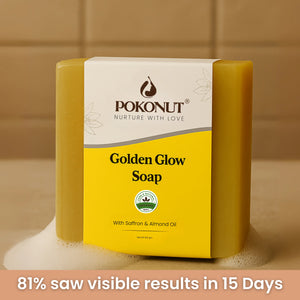Does Vitamin C Serum Darken Skin? Myth vs. Reality

Medically Reviewed By:
Dr. Mousumi Dash, BAMS
Written by Our Editorial Team
No, vitamin C serum does not darken your skin. In fact, it’s used to do the exact opposite not only fade dark spots but even brighten uneven tone, and reduce pigmentation. The confusion comes from how it's used, not the ingredient itself. When misused, like applying it without sunscreen or using an oxidized serum as it can lead to skin irritation or a temporary dull look, which some people mistake as darkening.
In this blog, we’ll break down why this myth exists, what’s actually happening, and how to use vitamin C the right way so you get results, not regret.
Why Do People Think Vitamin C Darkens Skin?

The myth usually starts with a bad experience: someone uses a serum, their skin looks worse, and vitamin C takes the blame. But here’s what’s often going on underneath:
-
They’re using a serum that’s gone bad
-
They’re applying it during the day without sunscreen
-
They’re mixing it with too many actives, causing irritation
-
Or they’re expecting instant results, and see natural purging or inflammation as "damage"
What Vitamin C Actually Does to Skin?![]()

Vitamin C (ascorbic acid) is a well-studied antioxidant that works to:
-
Slow melanin production (which causes hyperpigmentation)
-
Support collagen (which keeps skin firm and even)
-
Fight free radicals from pollution and sun exposure
-
Help fade dark spots and post-acne marks over time
Used correctly, it helps prevent darkening — not cause it.
If you're starting out and need guidance, this step-by-step guide on applying vitamin C serum explains how to layer it properly.
When Vitamin C Appears to Make Skin Worse
Let’s address the most common reasons people think vitamin C darkened their skin — and what’s really going on:
1. No Sunscreen After Applying It
Vitamin C boosts your skin’s ability to fight sun damage, but only if followed by sunscreen. Without it, your skin is more sensitive to UV rays, which can actually trigger pigmentation.
This has nothing to do with the serum being harmful. It’s about what’s missing from the routine.
Learn how to use it correctly in this nighttime usage guide, especially if you’re skipping SPF during the day.
2. Oxidized or Expired Serum
If your serum has turned dark yellow, orange, or brown, it’s oxidized. It won’t work the same. In fact, applying an oxidized serum can cause minor staining or clogged pores, making skin look worse temporarily.
This doesn’t mean the ingredient is harmful, it means the product is no longer stable.
Always store vitamin C in a cool, dark place with the cap sealed. If you're using a vitamin C face serum, check the color and smell before applying.
3. Overusing or Mixing With Harsh Ingredients
Vitamin C is strong — and doesn’t play well with everything. If you’re layering it with AHAs, BHAs, or retinol without a plan, your skin may react. That redness or inflammation can look like darkening, especially in deeper skin tones.
Less is more here. Use vitamin C with gentle cleansers, moisturizers, and ideally not in the same routine as other acids unless your skin is used to it.
What to Do If You Notice Skin Changes After Starting Vitamin C
If your skin starts looking darker, redder, or more irritated:
-
Pause use and check if your serum has oxidized
-
Review what you’re layering it with
-
Make sure you’re applying sunscreen in the morning
-
Simplify your routine- cleanse, serum, moisturise, sunscreen
-
Wait at least 2–3 weeks before judging results
Skin doesn’t transform overnight. Vitamin C works slowly but steadily when used consistently and correctly.
Final Word
Vitamin C isn’t darkening your skin. Poor application, bad combinations, expired products, or missing sunscreen are the usual culprits.
It's one of the most effective ingredients for brightening and evening out skin — but only if it’s used with care. If you're unsure where to start, use a stable, beginner-friendly vitamin C serum and stick to a routine that lets it do its job without interference.
The ingredient works. The key is: are you using it the right way?
Frequently Asked Questions
1. Can vitamin C serum actually darken skin?
No. Vitamin C does not biologically darken skin. It helps reduce melanin production and fades pigmentation. However, if you're using an oxidized product or skipping sunscreen, your skin might look dull or uneven, which can be mistaken as darkening.
2. Why does my skin look darker or orange after using vitamin C serum?
This usually happens when the serum has oxidized either in the bottle or on your skin. Oxidized vitamin C turns orange or brown and may leave a surface-level tint. It doesn’t mean your skin is permanently darker. Always check the color of the product before applying.
3. How do I know if my vitamin C serum is expired or oxidized?
Look for color changes. If the serum turns deep yellow, orange, or brown and smells metallic or sour, it's likely oxidized. At that point, it's less effective and may cause irritation or staining. Store it in a cool, dark place with the cap tightly sealed.
4. What does vitamin C serum do for your face?
It helps brighten skin, fade dark spots, support collagen, and protect against free radicals. Consistent use improves texture and evens out skin tone. For best results, apply a stable formula and follow up with sunscreen during the day.
Learn how to apply vitamin C serum on face
5. Can I use vitamin C serum at night?
Yes. Nighttime is a good option, especially if you want to avoid layering it under sunscreen. Your skin repairs itself overnight, so applying vitamin C during this time can support the healing process.
Here’s how to use vitamin C serum at night
6. At what age should I start using vitamin C serum?
Vitamin C can be used from your early 20s onward. It helps prevent early signs of ageing, sun damage, and uneven tone before they become harder to treat.
7. Is it normal for vitamin C serum to tint my skin?
A temporary orange or yellow tint may appear if too much serum is applied or if it oxidizes on your skin. This isn’t actual pigmentation. Use a smaller amount and allow it to absorb fully before layering other products.
8. How can I avoid skin reactions or dullness when using vitamin C?
Use a clean, stable formula. Don’t mix it with strong acids or retinol unless your skin is already used to them. Apply sunscreen if using it in the morning. Stick to a basic routine and give it time to work.
About Doctor :

